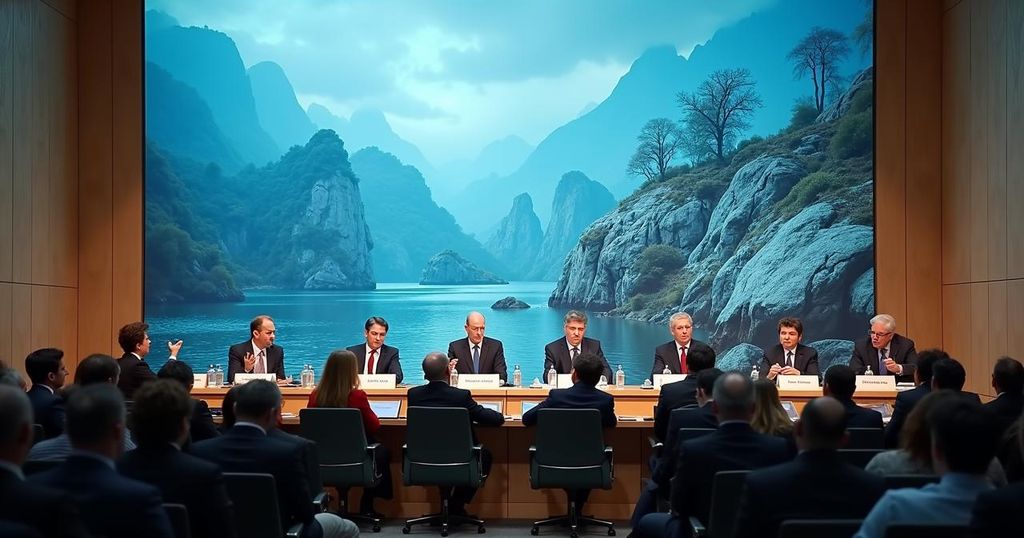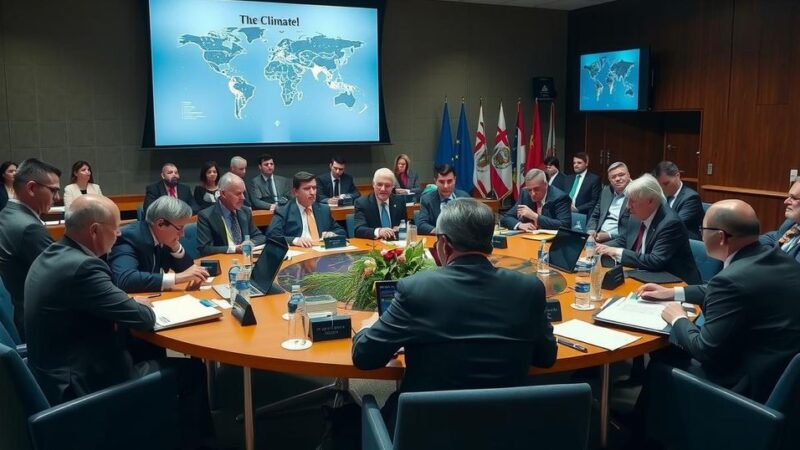As global leaders prepare for COP29 in Baku, discussions are ongoing regarding climate finance amidst a recognized need for trillions in investments. Negotiators aim to establish a new financing goal to replace the current $100 billion commitment from wealthy nations to developing countries. While the scale of financial needs is clear, a more realistic target for public sector contributions may be in the ‘hundreds of billions.’
The upcoming COP29 United Nations climate summit in Baku is poised to address significant financial needs amid growing concerns over climate change, with leaders acknowledging that while trillions are necessary, a more feasible consensus may reside in the realm of “hundreds of billions.” This meeting marks a crucial step as negotiators aim to establish a new financing goal to supplant the current commitment of wealthy nations to provide $100 billion annually to developing countries. COP29 presidency chief negotiator, Yalchin Rafiyev, indicated that negotiators have recognized the scale of financial requirements as being in the trillions; however, the public sector’s realistic contributions are anticipated to be significantly lower. The financial needs outlined are critical in light of the increasing frequency and intensity of climate-related disasters, such as hurricanes and extreme heat. Developing nations are appealing for enhanced financial support to adapt to the realities of climate change and to invest in sustainable practices like renewable energy sources. With global temperatures having risen approximately 1.3 degrees Celsius above pre-industrial levels—and with 2024 projected to potentially set records for warmth—scientific experts stress the urgency of ambitious action to limit global warming to 1.5 degrees Celsius. At the summit, over 100 world leaders, including numerous heads of state and government, are expected to convene. This includes the participation of 61 presidents, 38 prime ministers, and 2 crown princes as per mid-October registrations. Amid these discussions, COP29 President-Designate Mukhtar Babayev has remarked on the narrowing of options and emerging consensus but emphasized the necessity for deeper collaboration among parties. Furthermore, Azerbaijan’s President Ilham Aliyev has urged participants to focus on solutions rather than assign blame for climate degradation.
The COP29 summit is critical as climate change poses a significant threat to the planet, calling for urgent financial action to mitigate its effects, particularly in developing nations that are disproportionately impacted. The need for a new financing agreement comes as the existing commitment by wealthier nations—providing $100 billion annually to developing countries—has been recognized as insufficient in addressing the broader financial requirements needed to combat climate change effectively. With the scientific consensus underscoring the need to limit global temperature increases, the issue of climate finance becomes even more pressing, as countries seek to finance adaptation and emissions reduction efforts.
In summary, the COP29 summit represents a pivotal moment for global climate action, as leaders strive to establish a financial framework that adequately addresses the extensive requirements of mitigating climate change impacts. Although the need for investment is acknowledged to be in the trillions, realistic expectations place the achievable commitments in the range of hundreds of billions. Enhanced collaboration and a focus on practical solutions are essential for moving forward, as emphasized by leaders in anticipation of this critical conference.
Original Source: theprint.in






